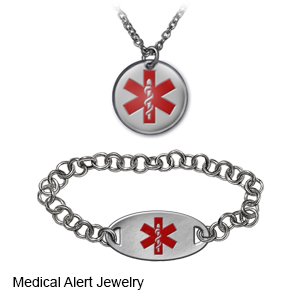Heparin-Induced Thrombocytopenia
Medically reviewed by Drugs.com. Last updated on Aug 4, 2025.
Heparin-induced thrombocytopenia (HIT) is a condition that causes a decrease of platelets in the blood. Platelets help the blood clot. HIT usually occurs after you are treated with heparin.
DISCHARGE INSTRUCTIONS:
Medicines:
You may need any of the following:
- Blood thinners help prevent blood clots. Clots can cause strokes, heart attacks, and death. Many types of blood thinners are available. Your healthcare provider will give you specific instructions for the type you are given. The following are general safety guidelines to follow while you are taking a blood thinner:
- Watch for bleeding and bruising. Watch for bleeding from your gums or nose. Watch for blood in your urine and bowel movements. Use a soft washcloth on your skin, and a soft toothbrush to brush your teeth. This can keep your skin and gums from bleeding. If you shave, use an electric shaver. Do not play contact sports.
- Tell your dentist and other healthcare providers that you take a blood thinner. Wear a bracelet or necklace that says you take this medicine.
- Do not start or stop any other medicines or supplements unless your healthcare provider tells you to. Many medicines and supplements cannot be used with blood thinners.
- Take your blood thinner exactly as prescribed by your healthcare provider. Do not skip a dose or take less than prescribed. Tell your provider right away if you forget to take your blood thinner, or if you take too much.
- Antiplatelets , such as aspirin, help prevent blood clots. Take your antiplatelet medicine exactly as directed. These medicines make it more likely for you to bleed or bruise. If you are told to take aspirin, do not take acetaminophen or ibuprofen instead.
- Take your medicine as directed. Contact your healthcare provider if you think your medicine is not helping or if you have side effects. Tell your provider if you are allergic to any medicine. Keep a list of the medicines, vitamins, and herbs you take. Include the amounts, and when and why you take them. Bring the list or the pill bottles to follow-up visits. Carry your medicine list with you in case of an emergency.
Tell all healthcare providers about your reaction to heparin:
You may want to carry a medical card or wear medical alert jewelry.
 |
Related medications
Follow up with your healthcare provider as directed:
You will need to return for blood tests. Write down your questions so you remember to ask them during your visits.
Contact your healthcare provider if:
- You have a fever.
- You have numbness in your arms or legs.
- You have severe pain in your arms or legs that does not go away.
- You have trouble standing and walking.
- You have questions or concerns about your condition or care.
Return to the emergency department if:
- You feel lightheaded, short of breath, and have chest pain.
- You cough up blood.
- Your arm or leg feels warm, tender, and painful. It may look swollen and red.
- You have any of the following signs of a heart attack:
- Squeezing, pressure, or pain in your chest
- You may also have any of the following:
- Discomfort or pain in your back, neck, jaw, stomach, or arm
- Shortness of breath
- Nausea or vomiting
- Lightheadedness or a sudden cold sweat
© Copyright Merative 2025 Information is for End User's use only and may not be sold, redistributed or otherwise used for commercial purposes.
The above information is an educational aid only. It is not intended as medical advice for individual conditions or treatments. Talk to your doctor, nurse or pharmacist before following any medical regimen to see if it is safe and effective for you.
Learn more about Heparin-Induced Thrombocytopenia
Treatment options
Care guides
- Heparin-Induced Thrombocytopenia
- Immune Thrombocytopenia
- Immune Thrombocytopenia in Children
- Purpura
- Thrombocytopenia
Symptoms and treatments
Further information
Always consult your healthcare provider to ensure the information displayed on this page applies to your personal circumstances.
